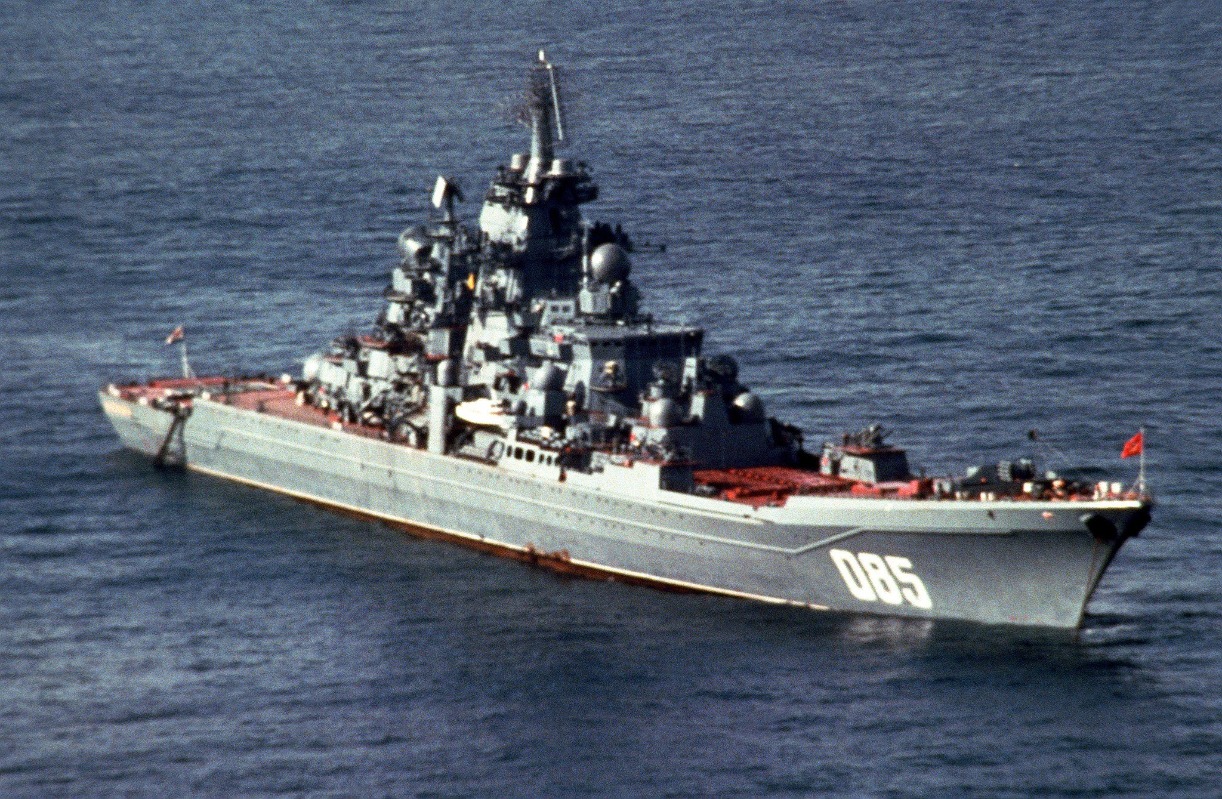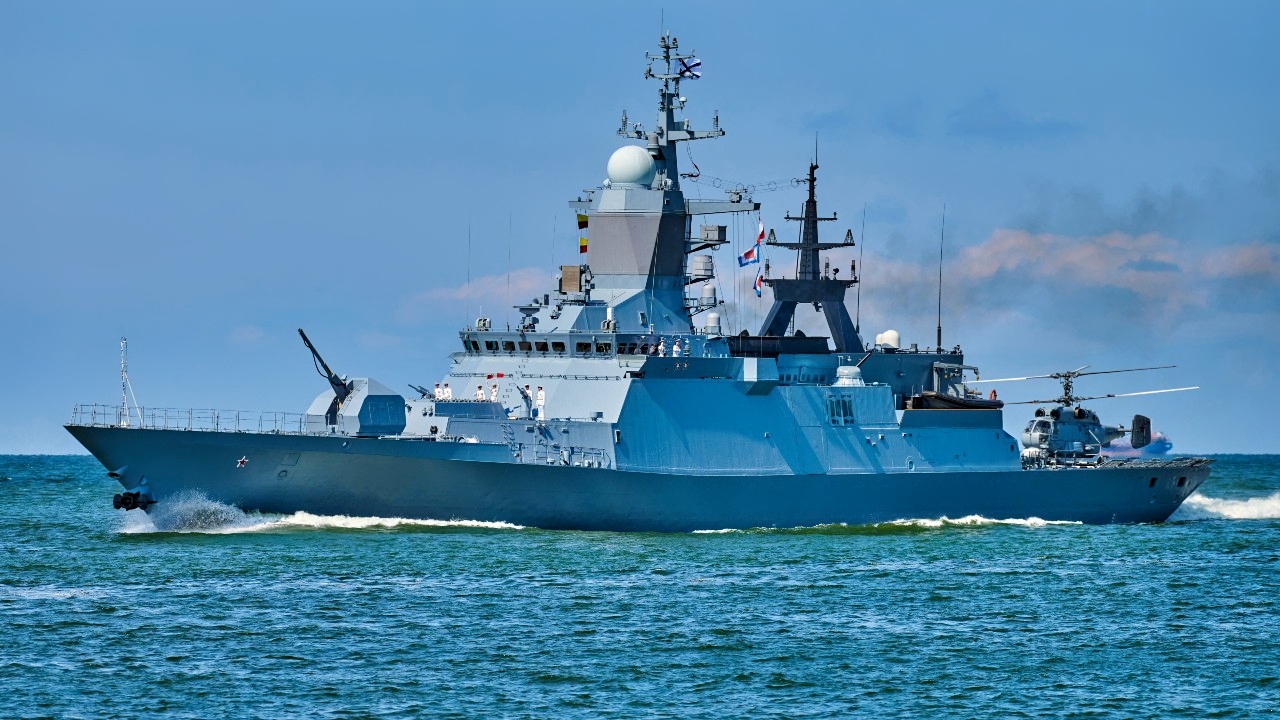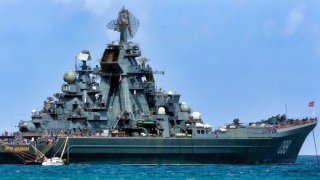The Russian Navy Is Slowly Falling Apart
Russia's naval power is facing significant setbacks, highlighted by the recent withdrawal of its last patrol ship from Crimea amid ongoing challenges.
Summary and Key Points: Russia's naval power is facing significant setbacks, highlighted by the recent withdrawal of its last patrol ship from Crimea amid ongoing challenges.

-Despite Ukraine lacking a navy, it has effectively neutralized Russia's Black Sea Fleet presence. Compounding these issues, Russia is struggling with delayed refits of key vessels, including the Admiral Kuznetsov aircraft carrier and Admiral Nakhimov battlecruiser.
-The Kremlin has also canceled its main naval parade in St. Petersburg for the first time in eight years, citing security concerns. This move reflects broader issues within Russia's navy, as it grapples with vulnerabilities and declining operational capabilities.
Russia Needs to Accept It Simply Is Not a Naval Power
This has been a dark month in the history of the Russian Navy. The Kremlin was forced to withdraw its last remaining patrol ship from occupied Crimea last week – which has been worse by the fact that Ukraine has essentially no navy of its own.
Since the April 2022 sinking of the guided-missile frigate and Black Sea Fleet flagship Moskva, Russia has faced a never-ending series of setbacks –but the Kremlin's withdrawal of its warships from Crimea only pushes home the point that even if Ukraine isn't actually winning at sea, Russia is certainly losing. Ukraine has fought Russia to a standstill on land, but it has now driven the Black Sea Fleet from its homeport. Should the Kerch Bridge that links mainland Russia with Crimea be taken out of service, it would serve to present further troubles for Moscow.
Parade Canceled
The Russian Navy's setbacks in the Black Sea are far from its only current woes. It continues to struggle to complete the refit of its flagship aircraft carrier Admiral Kuznetsov, while the efforts to modernize the battlecruiser Admiral Nakhimov are also running behind schedule.
It was also reported that for the first time in eight years, a portion of the annual naval parade near St. Petersburg – which serves to commemorate the founding of the Russian Navy – has been canceled.
President Vladimir Putin signed a decree in 2017 that reestablished the Main Naval Parade on the last Sunday in July as a national holiday. It has been seen as a source of pride within Russia, where its naval might was on display. This year's celebrations are set to occur on July 28, but the Kremlin has scuttled plans for its main parade in Kronstadt, while only the smaller event on the Neva River will go on as planned.
It is unlikely if Putin will be in attendance, but Russia's new Defense Minister Andrei Belousov, and Navy Commander-in-Chief Admiral Aleksandr Moiseev are expected to be present.
The naval parade in Severomorks is scheduled to go ahead as planned, as will similar small-scale events in Kaliningrad and Vladivostok. However, no events in Sevastopol or Novorossiysk – bases for the Black Sea Fleet – will take place.
Security reasons were cited as to why this year's "main event" has been scaled back. Only around a dozen vessels, including smaller Russian Navy warships, will take part in the parade down the Neva River, while the larger combat vessels and submarines will remain anchored and moored near the center of St. Petersburg.

That is a stark contrast to last year when 45 ships of all sizes, including nuclear-powered submarines – along with some 3,000 military personnel – took part in the parade.
Though St. Petersburg is almost 1,200 miles from Ukraine, Moscow may have concerns that even a minor incident would be devastating from a public relations standpoint. Warships on parade could be vulnerable to small aerial and sea-skimming drones. Clearly, the Kremlin isn't willing to take any chances at this point.
Author Experience and Expertise: Peter Suciu
Peter Suciu is a Michigan-based writer. He has contributed to more than four dozen magazines, newspapers, and websites with over 3,200 published pieces over a twenty-year career in journalism. He regularly writes about military hardware, firearms history, cybersecurity, politics, and international affairs. Peter is also a Contributing Writer for Forbes and Clearance Jobs. You can follow him on Twitter: @PeterSuciu. You can email the author: [email protected].
Image Credit: Creative Commons.


